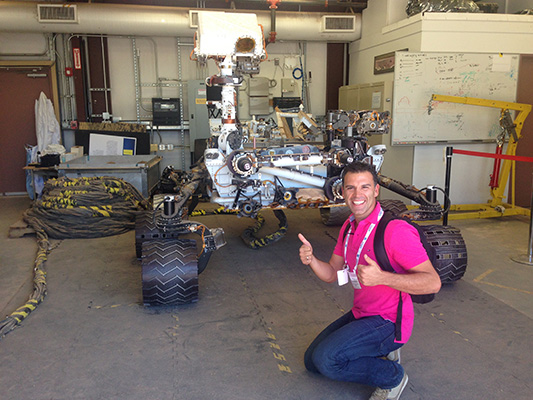
I received my doctorate degree in Astrophysics from University Complutense (Madrid, Spain) in 2018. My dissertation focused on Mars Atmosphere modeling. I hold a B.S. in Computer Science (University of Salamanca, Spain), a M.S. in Space Science (University of Alcala, Spain), a M.S. in Astrophysics (International Valencian University, Spain) and a M.S. in Meteorology (University Complutense, Spain). I am a Research Scientist in three NASA missions to Mars, being team member of four different projects related with Martian atmosphere: REMS weather instrument (on board Mars Science Laboratory Curiosity rover), TWINS weather instrument (on board InSight lander), MEDA weather instrument (on board Mars2020 rover) and member of the NASA Council of Atmospheres for Mars2020 rover. I also worked for three years in the ESA RLS instrument (on board ExoMars2020 Rosalind Franklin rover). I worked also at the Teide Observatory (Canary Island) from 2007- 2009 as telescope operator/astrophysicist. I am affiliated at Centro de Astrobiologia (associated to NASA Astrobiology Institute, Madrid, Spain) from 2009-today. I am working on the meteorological interpretations of Mars sites (Pla-Garcia et al. 2016, 2017, 2020), performing meteorological predictions for Mars2020 high-priority EDL landing sites (Pla-Garcia et al. 2015) and constraining the source of Curiosity rover methane detections using mesoscale modeling (Pla-Garcia et al. 2019). I presented my work giving lectures in the most important planetary science congresses in the world: AGU (San Francisco x9), EGU (Vienna x9), JpGU (Tokyo x2), EPSC (London, Nantes, Riga, Berlin and Geneva) and DPS (Pasadena and Provo). In 2013, I received the NASA Group Achievement Award as part of the REMS Team and in 2016, I received the Japan Geoscience Union (JpGU) Student Outstanding Presentation Award. During 2013 I was onsite at the Southwest Research Institute (SwRI, Boulder, CO) and during the falls of 2016 and 2017 I was onsite at Space Science Institute.
